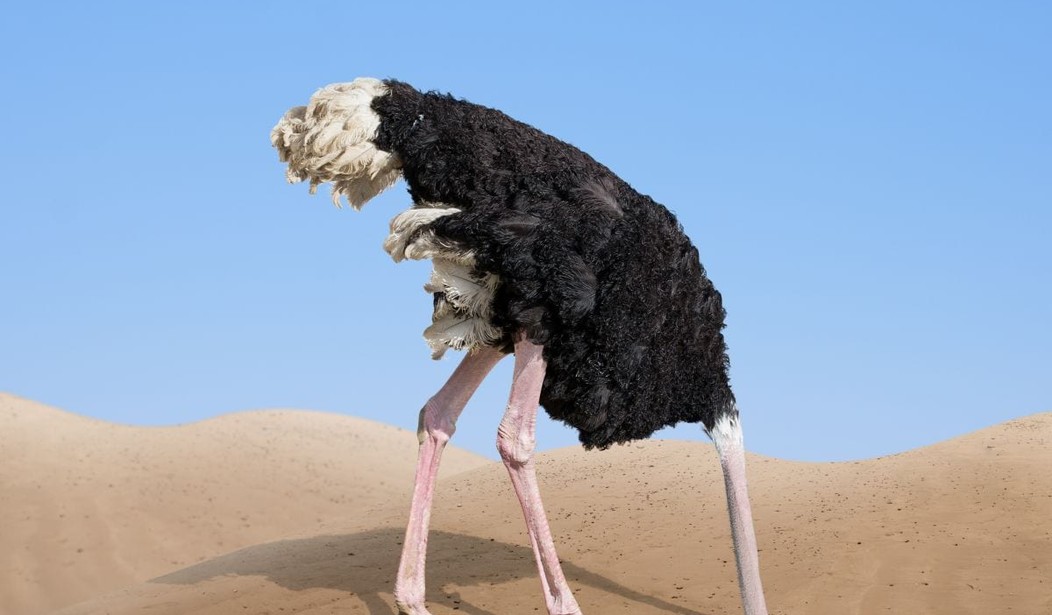The new year has gotten off to quite a start. Shia Iran and the Sunni Arab states have broken relations and are beginning to sound a lot like belligerents ready to go to war. The Chinese stock market tanked by nearly 7% while the Dow bled 300 points to open the year. And with the Iowa caucuses 30 days away, we will soon be faced with the probable choice of electing a screeching liberal harridan or a screaming celebrity tycoon.
But beyond that, there are at least 10 reasons why the global outlook for 2016 is so bad, we will end up envying the ostrich. The Eurasia Group has issued its annual list of the political and geopolitical trends that threaten stability, and if only a couple of these trends end up materializing, we’re going to wish we never woke up on New Year’s Day.
1. The Hollow Alliance
The trans-Atlantic partnership has been the world’s most important alliance for nearly 70 years, but it’s now weaker, and less relevant, than at any point in decades. It no longer plays a decisive role in addressing any of Europe’s top priorities.
2. Closed Europe
In 2016, divisions in Europe will reach a critical point as a core conflict emerges between Open Europe and Closed Europe — and a combination of inequality, refugees, terrorism, and grassroots political pressures pose an unprecedented challenge to the principles on which the new Europe was founded.
3. The China Footprint
The recognition in 2016 that China is both the most important and most uncertain driver of a series of global outcomes will increasingly unnerve other international players who aren’t ready for it, don’t understand or agree with Chinese priorities, and won’t know how to respond to it.
4. ISIS and “Friends”
For 2016, this problem will prove unfixable, and Isil (and other terrorist organisations) will take advantage of that. The most vulnerable states will remain those with explicit reasons for Isil to target them (France, Russia, Turkey, Saudi Arabia, and the United States).
5. Saudi Arabia
The Saudi Kingdom faces a growing risk of destabilising discord within the royal family this year, and its increasingly isolated status will lead it to act more aggressively across the Middle East this year.
6. The rise of technologists
A variety of highly influential non-state actors from the world of technology are entering the realm of politics with unprecedented assertiveness. These newly politically ambitious technologists are numerous and diverse, with profiles ranging from Silicon Valley corporations to hacker groups and retired tech philanthropists. The political rise of these actors will generate pushback from governments and citizens, generating both policy and market volatility.
7. Unpredictable leaders
An unusually wide constellation of leaders known for their erratic behaviour will make international politics exceptionally volatile this year. Russia’s Vladimir Putin and Turkey’s Recep Tayyip Erdogan are leaders of an unruly pack that includes Saudi Arabia’s Deputy Crown Prince Mohammed bin Salman and – to a lesser but important extent – Ukraine’s Petro Poroshenko.
8. Brazil
President Dilma Rousseff is fighting for her political survival, and the country’s political and economic crisis is set to worsen in 2016. Contrary to hopes among pundits and many market players, the battle over Rousseff’s impeachment is unlikely to end the current political stalemate.
9. Not enough elections
Emerging markets underwent a historic cycle of national elections in 2014-2015, but this year there are relatively few opportunities for EM voters to make themselves heard at the ballot box.
10. Turkey
After a decisive victory for his AK party in late 2015, President Erdogan will now push to replace the country’s parliamentary system with a presidential one. He’s unlikely to reach his goal in 2016, but his aggressive electioneering will further damage an already battered Turkish business and investment climate.
How delightful. It sounds as if much of the world is about to blow up. But we really shouldn’t worry so. Our leaders are far too smart to let that happen, right?
Actually, if the past is any guide, our leaders will find a way to muddle through – usually by kicking the can down the road hoping that their successor will be the one who gets stuck when the crap really hits the fan. It’s not so much a strategy as it is a roll of the dice, or perhaps, musical chairs.
And the day the music stops, you almost certainly want to be somewhere else.










Join the conversation as a VIP Member